-
 Bitcoin
Bitcoin $87,117.4970
-0.35% -
 Ethereum
Ethereum $2,421.5228
1.81% -
 Tether USDt
Tether USDt $0.9989
-0.05% -
 XRP
XRP $2.2474
2.87% -
 BNB
BNB $616.6060
1.68% -
 Solana
Solana $137.3017
0.60% -
 USDC
USDC $0.9999
0.00% -
 Dogecoin
Dogecoin $0.2069
2.20% -
 Cardano
Cardano $0.6760
4.83% -
 TRON
TRON $0.2292
0.54% -
 Chainlink
Chainlink $15.4686
6.38% -
 Litecoin
Litecoin $126.8873
15.70% -
 Sui
Sui $2.9811
9.24% -
 Avalanche
Avalanche $22.0780
6.32% -
 Stellar
Stellar $0.2938
6.83% -
 Toncoin
Toncoin $3.5273
2.59% -
 UNUS SED LEO
UNUS SED LEO $9.2312
3.93% -
 Shiba Inu
Shiba Inu $0.0...01421
4.57% -
 Hedera
Hedera $0.1964
7.25% -
 MANTRA
MANTRA $7.7455
0.62% -
 Polkadot
Polkadot $4.8105
10.57% -
 Hyperliquid
Hyperliquid $20.3325
10.95% -
 Ethena USDe
Ethena USDe $0.9993
-0.02% -
 Bitcoin Cash
Bitcoin Cash $294.0376
4.95% -
 Dai
Dai $0.9997
0.01% -
 Uniswap
Uniswap $8.0712
4.62% -
 Bitget Token
Bitget Token $3.8811
-7.19% -
 Monero
Monero $217.1669
-0.86% -
 NEAR Protocol
NEAR Protocol $3.0448
6.74% -
 Pepe
Pepe $0.0...08231
6.33%
Is the Stader (SD) coin built on its own blockchain?
Stader (SD) operates on the Ethereum blockchain, leveraging its security and infrastructure to provide users with Ethereum staking opportunities and governance participation.
Jan 01, 2025 at 07:02 am
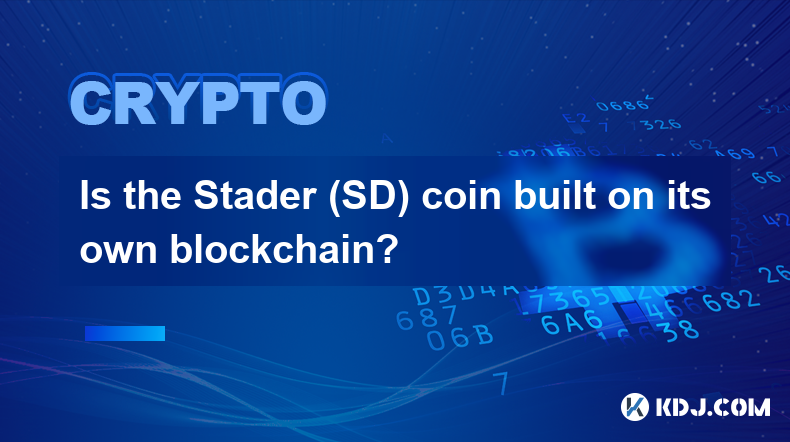
Key Points:
- Stader (SD) is an Ethereum-based decentralized finance (DeFi) protocol
- SD allows users to stake their Ethereum (ETH) to earn rewards and participate in governance
- Stader offers various staking pools with different lock-up periods and reward rates
- SD token holders can vote on proposals related to the platform's development and staking rewards
- Staking SD can provide passive income and allow users to participate in the governance of the protocol
Is Stader (SD) Built on Its Own Blockchain?
No, Stader (SD) is not built on its own blockchain. It is an Ethereum-based protocol that leverages the security and infrastructure of the Ethereum network. This allows Stader to benefit from the reliability and decentralization of Ethereum while focusing on its core competencies in staking and governance.
How Does Stader (SD) Work?
Stader (SD) enables users to stake their Ethereum (ETH) to earn staking rewards and participate in the governance of the protocol. The staked ETH is held in a non-custodial staking pool, and rewards are distributed proportionally based on the amount of ETH staked and the length of time it is locked up.
What are the Benefits of Using Stader (SD)?
Passive Income through Staking:
By staking ETH through Stader, users can earn passive income in the form of staking rewards. The rewards are generated from a portion of the block rewards received by the staking pool.
Participation in Governance:
SD token holders can participate in the governance of Stader. They can vote on proposals related to the platform's development, staking rewards, and other aspects of the protocol's operations.
Enhanced Security:
Stader leverages the security infrastructure of the Ethereum network to ensure the safety and reliability of staked assets. The use of smart contracts and audits further enhances the security of the protocol.
Flexibility with Lock-up Periods:
Stader offers various staking pools with different lock-up periods. Users can choose the lock-up period that best suits their investment goals and risk tolerance.
Transparency and Accessibility:
Stader operates in a transparent and accessible manner. All staking pools and reward distributions are publicly viewable on the protocol's dashboard, ensuring transparency for users.
FAQs:
Q: Where can I purchase SD tokens?
A: SD tokens can be purchased on various cryptocurrency exchanges, including Binance, Coinbase, and Uniswap.
Q: What are the minimum and maximum amounts of ETH that I can stake?
A: The minimum amount of ETH that can be staked on Stader varies depending on the staking pool, but it generally ranges from 1 to 16 ETH. The maximum amount of ETH that can be staked is not capped.
Q: Are there any penalties for early unstaking?
A: Yes, early unstaking may result in a penalty, such as a loss of rewards or a reduction in the lock-up period. The specific penalties vary depending on the staking pool and the amount of time left in the lock-up period.
Q: How often are staking rewards distributed?
A: Staking rewards are typically distributed on a regular basis, such as daily or weekly. The frequency of rewards distribution may vary depending on the staking pool and the underlying Ethereum network conditions.
Disclaimer:info@kdj.com
The information provided is not trading advice. kdj.com does not assume any responsibility for any investments made based on the information provided in this article. Cryptocurrencies are highly volatile and it is highly recommended that you invest with caution after thorough research!
If you believe that the content used on this website infringes your copyright, please contact us immediately (info@kdj.com) and we will delete it promptly.
- Oklahoma Passes a Strategic Bitcoin Reserve Bill Despite BTC's Recent Drop Below $90K
- 2025-02-26 22:45:31
- Bitcoin (BTC) Price Drops $20k from ATH as Crypto Market Remains Flat
- 2025-02-26 22:45:31
- CoinW Elevates Security Standards and Unveils High-Yield Crypto Earnings
- 2025-02-26 22:45:31
- Pi Coin: The Next Big Leap in Cryptocurrency Acceptance?
- 2025-02-26 22:45:31
- Pi Coin Price Soars 200% Following Dip, But These Penny Altcoins Could Skyrocket 50x in 2025
- 2025-02-26 22:45:31
- Orbs Enables Its Perpetual Hub to Interact with Xpanse, a Perpetual Trading Protocol
- 2025-02-26 22:45:31
Related knowledge
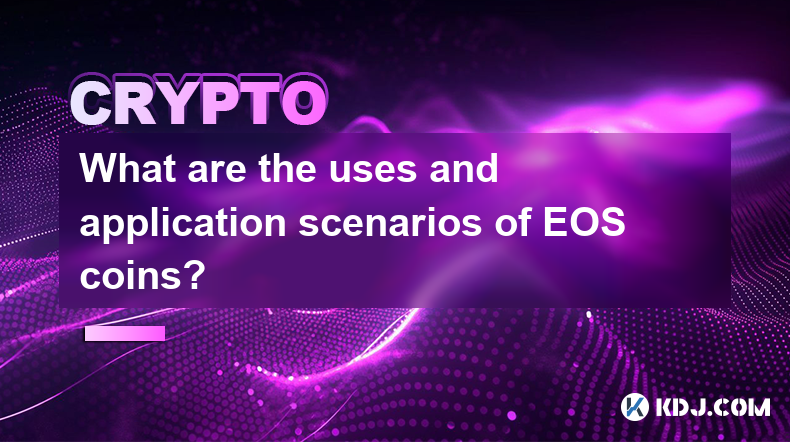
What are the uses and application scenarios of EOS coins?
Feb 26,2025 at 09:54pm
EOS: Decentralized Infrastructure for Scalable Blockchain ApplicationsKey Points:EOS enables the creation and deployment of decentralized applications with unparalleled scalability and efficiency.Its unique architecture features a high-throughput blockchain with zero transaction fees and the ability to process millions of transactions per second.EOS is ...
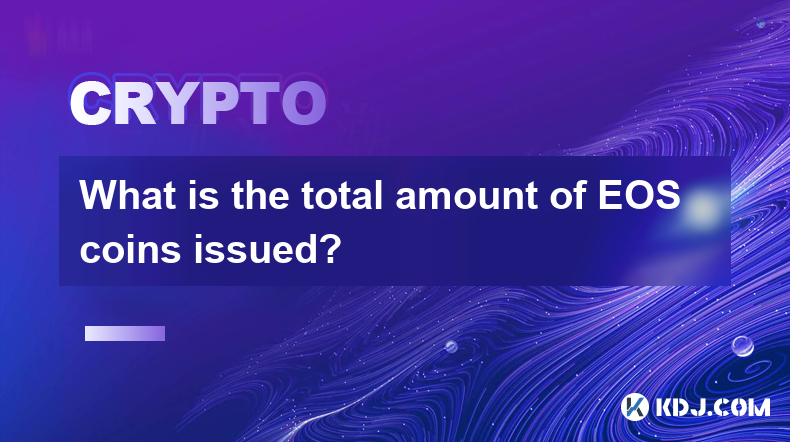
What is the total amount of EOS coins issued?
Feb 26,2025 at 06:24pm
Key PointsTotal Supply: Understand the concept of initial supply and its impact on EOS tokenomicsSupply Dynamics: Explore the various factors that affect EOS supply, including inflation and staking incentivesMarket Capitalization vs. Circulating Supply: Delve into the nuances between these metrics and their significance in token valuationDistribution an...
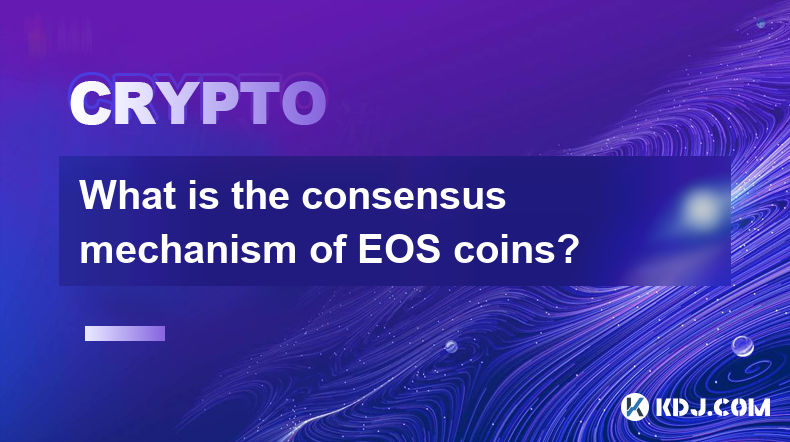
What is the consensus mechanism of EOS coins?
Feb 26,2025 at 11:19am
Key Points:EOSIO: The Foundation of EOS's Consensus MechanismDPOS: Delegated Proof-of-StakeBlock Producer ElectionsContinuous Block ProductionBlock Validation and IrreversibilityConsensus and Fork PreventionCommunity Governance and VotingWhat is the Consensus Mechanism of EOS Coins?EOS, an innovative blockchain platform, employs a unique consensus mecha...
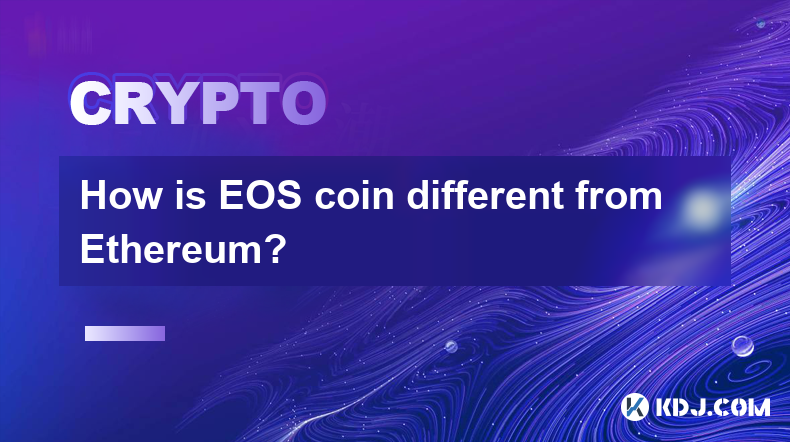
How is EOS coin different from Ethereum?
Feb 26,2025 at 10:48am
Key Points:Overview of EOS and EthereumDifferences in Consensus MechanismsAdvantages and Limitations of Each PlatformUse Cases and Target AudiencesComparison of Transaction Fees and ScalabilityCommunity Support and Development ActivityHow is EOS Coin Different from Ethereum?1. Overview of EOS and EthereumEOS and Ethereum are two of the most popular bloc...
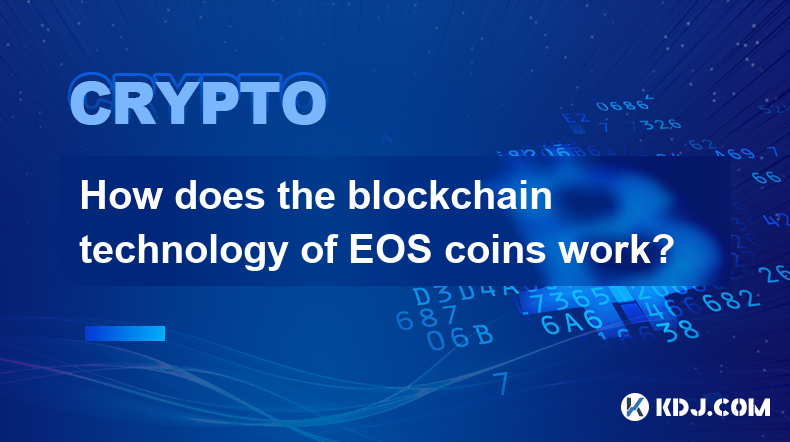
How does the blockchain technology of EOS coins work?
Feb 25,2025 at 11:13pm
Key PointsEOS is a blockchain platform that provides a high-throughput and scalable solution for decentralized applications.EOS uses a delegated proof-of-stake (DPoS) consensus mechanism to elect block producers and maintain the blockchain.EOSIO, the open-source software that powers EOS, offers a range of developer tools and features to facilitate the c...
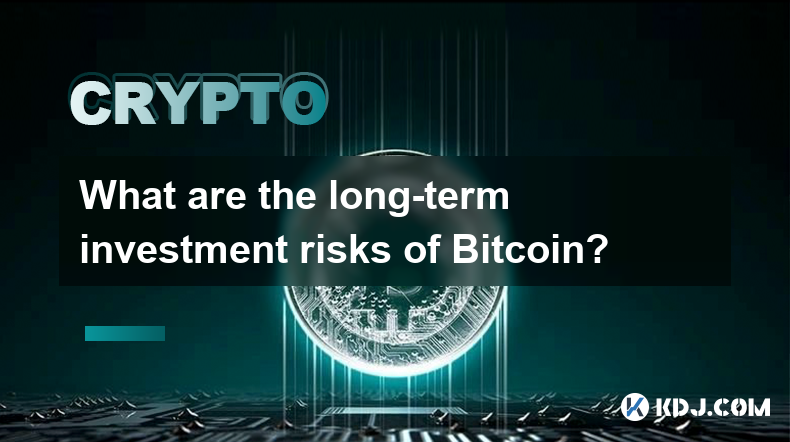
What are the long-term investment risks of Bitcoin?
Feb 22,2025 at 05:30pm
Key PointsVolatility and price fluctuationsRegulatory uncertaintySecurity risksCompetition from altcoinsMarket manipulation and scamsTransaction feesEnvironmental concernsLong-Term Investment Risks of BitcoinVolatility and Price FluctuationsBitcoin's high volatility is a double-edged sword. While it has the potential to generate substantial returns, it ...

What are the uses and application scenarios of EOS coins?
Feb 26,2025 at 09:54pm
EOS: Decentralized Infrastructure for Scalable Blockchain ApplicationsKey Points:EOS enables the creation and deployment of decentralized applications with unparalleled scalability and efficiency.Its unique architecture features a high-throughput blockchain with zero transaction fees and the ability to process millions of transactions per second.EOS is ...

What is the total amount of EOS coins issued?
Feb 26,2025 at 06:24pm
Key PointsTotal Supply: Understand the concept of initial supply and its impact on EOS tokenomicsSupply Dynamics: Explore the various factors that affect EOS supply, including inflation and staking incentivesMarket Capitalization vs. Circulating Supply: Delve into the nuances between these metrics and their significance in token valuationDistribution an...

What is the consensus mechanism of EOS coins?
Feb 26,2025 at 11:19am
Key Points:EOSIO: The Foundation of EOS's Consensus MechanismDPOS: Delegated Proof-of-StakeBlock Producer ElectionsContinuous Block ProductionBlock Validation and IrreversibilityConsensus and Fork PreventionCommunity Governance and VotingWhat is the Consensus Mechanism of EOS Coins?EOS, an innovative blockchain platform, employs a unique consensus mecha...

How is EOS coin different from Ethereum?
Feb 26,2025 at 10:48am
Key Points:Overview of EOS and EthereumDifferences in Consensus MechanismsAdvantages and Limitations of Each PlatformUse Cases and Target AudiencesComparison of Transaction Fees and ScalabilityCommunity Support and Development ActivityHow is EOS Coin Different from Ethereum?1. Overview of EOS and EthereumEOS and Ethereum are two of the most popular bloc...

How does the blockchain technology of EOS coins work?
Feb 25,2025 at 11:13pm
Key PointsEOS is a blockchain platform that provides a high-throughput and scalable solution for decentralized applications.EOS uses a delegated proof-of-stake (DPoS) consensus mechanism to elect block producers and maintain the blockchain.EOSIO, the open-source software that powers EOS, offers a range of developer tools and features to facilitate the c...

What are the long-term investment risks of Bitcoin?
Feb 22,2025 at 05:30pm
Key PointsVolatility and price fluctuationsRegulatory uncertaintySecurity risksCompetition from altcoinsMarket manipulation and scamsTransaction feesEnvironmental concernsLong-Term Investment Risks of BitcoinVolatility and Price FluctuationsBitcoin's high volatility is a double-edged sword. While it has the potential to generate substantial returns, it ...
See all articles

















































































